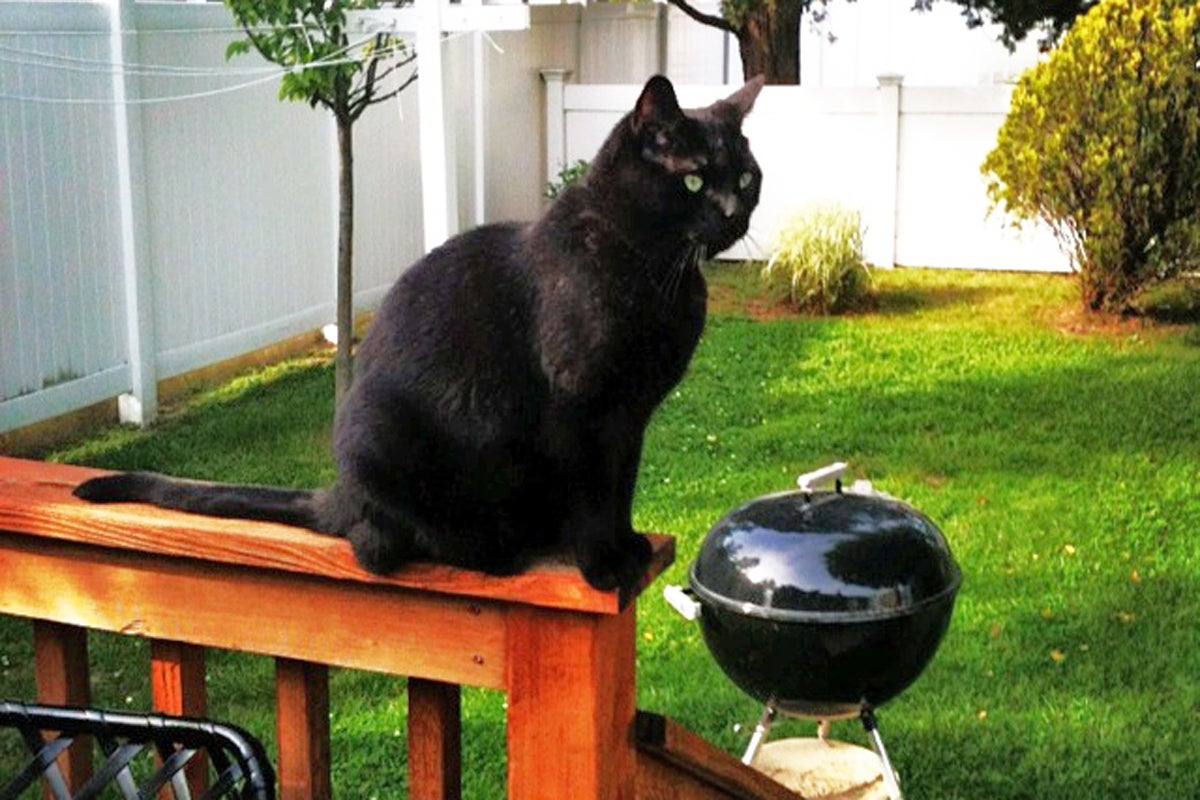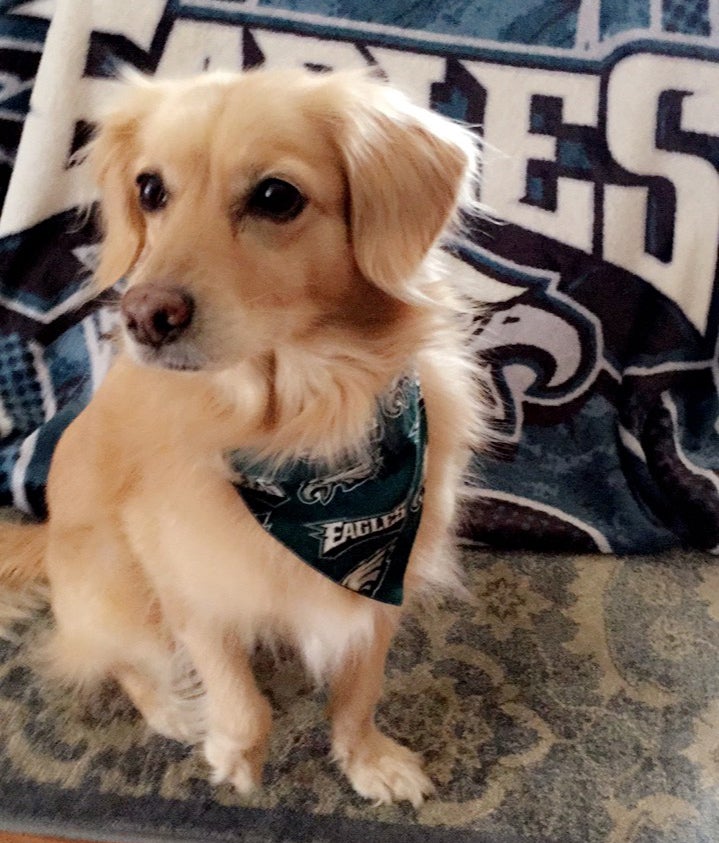America is really going to the dogs — and who can blame us?
As we grow further apart, forming factions within our nation, as technology weakens our social skills, as more of us live alone, pets can be a source of unconditional love.

Charlie is a black Lab look-alike with a penchant for taking over the bed. (Image courtesy of Marybeth Hagan)
We the People are increasingly going to the dogs (and other pets) during these seasons of our national discontent. Pet ownership is up, the American Pet Products Association reports.
An upward trend in pet ownership has been consistent for more than two decades, according to the APPA’s 2017-2018 National Pet Owners Survey. Today, there are 84.6 million pet-owning households. There were 79.7 million in 2015. Pets are now part of the family in 68 percent of American households
No wonder. As we grow further apart by forming factions within our nation, sometimes with biting hostility, as technology unintentionally weakens our socialization skills, and as more of us live alone, dogs, cats and other animals can be a source of unconditional love.
Two out of three of my young adult children, and their significant others, own dogs that they adore. My offspring, Melanie, Amy, and Mike, grew up with their pets. Augie, a handsome black Labrador-Great Dane mix, watched over them from their infancies and throughout their younger years. After Augie died, along came Chester, a gorgeous, dumb-blond “purebred” golden retriever. Maximus, a street-smart, no-way-you’re-keeping-me indoors, SPCA-adopted black cat, joined the household when my children were in their late teens.

While Mike loves everybody’s four-legged friends and counts dog-walker among his past part-time jobs, Melanie and Amy own pets much like many of their millennial peers. Millennials or Generation Y, people born in the early 1980s through the late 1990s, now account for 35 percent of all pet owners, the APPA reported. They now own more pets than baby boomers.
During a visit with my long-distance daughter in 2016, this baby boomer thoroughly enjoyed getting to know Charlie, Melanie’s lanky, black Lab retriever lookalike that she adopted from a family with young children. In my canine-owning days, I did not allow dogs to sleep in family members’ beds. So the joke was on me when I woke up one morning in sunny San Diego with Charlie’s giant, furry body and four legs sprawled out next to me.
Closer to home, visits with or occasional overnights caring for little Lady, Amy’s SPCA-adopted miniature golden retriever lookalike, are delightful. With love, Lady has evolved from a cowering, scrawny pooch, one clearly abused in her past, into a bundle of affection.

Like Lady, many dogs in my Merion Station neighborhood, or next door in Narberth where I work, are adopted from animal shelters — or “rescued,” as they say today. Interestingly, pit bulls or part-pits appear to be the new dog of choice on the Main Line!
All of this love for animals must be pleasing to St. Francis of Assisi.
We Catholics are fond of St. Francis, who founded the Franciscan religious order in the early 13th century, because he gently drew people to God via his love for all creatures. This saint had a way with birds in the air, rabbits on land, and the fish in the sea. Francis even talked a wolf out of terrorizing folks in the medieval town of Gubbio, Italy, or so the story goes.
Others might recognize St. Francis as a statue often found in gardens, the monk with bird in his hand or on a shoulder. Some artworks feature Francis with that wolf at his feet.
If the Peace Prayer attributed to this patron saint of animals is any indication, St. Francis also had a way with words. Francis wrote:
Lord, make me an instrument of your peace:
where there is hatred, let me sow love;
where there is injury, pardon;
where there is doubt, faith;
where there is despair, hope;
where there is darkness, light;
where there is sadness, joy.
O divine Master, grant that I may not so much seek
to be consoled as to console,
to be understood as to understand,
to be loved as to love.
For it is in giving that we receive,
it is in pardoning that we are pardoned,
and it is in dying that we are born to eternal life.
Imagine if we adopted St. Francis’ attitude toward God and humanity with as much enthusiasm as we do in adopting and loving our pets. Optimism might finally prevail.
WHYY is your source for fact-based, in-depth journalism and information. As a nonprofit organization, we rely on financial support from readers like you. Please give today.



